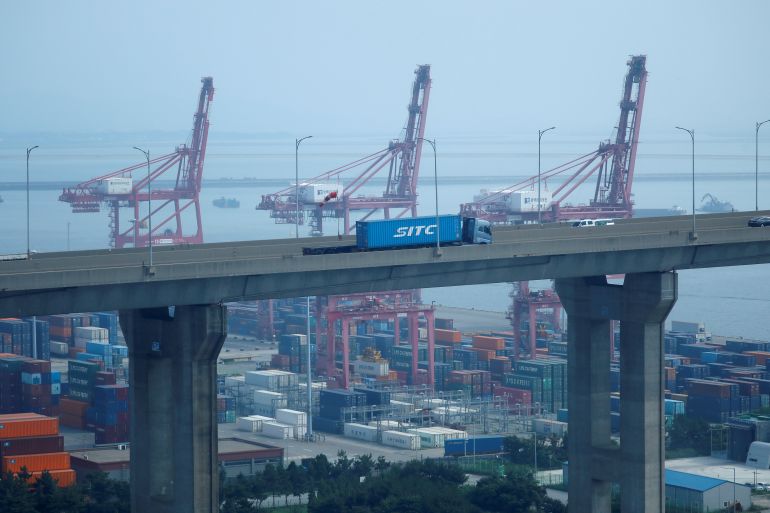South Korea’s exports suffer longest losing streak in 3 years
Exports decline for seventh straight month in April amid extended slump in sales to China.

South Korea’s exports have fallen for a seventh straight month in April for their longest losing streak in three years, driven by an extended slump in sales to China and suggesting persistent pressure on the economy from frail global demand.
The downturn comes despite the December reopening of the Chinese economy — a major market for South Korean goods and especially for semiconductor chips — and raises the challenge for policymakers as they push for a robust post-COVID revival.
Keep reading
list of 4 itemsUK set to join trans-Pacific free trade pact
Kamala Harris announces Tanzania trade initiatives on Africa tour
In Malawi, female fish traders mobilise against transactional sex
Overseas sales by Asia’s fourth-largest economy fell 14.2 percent year-on-year to $49.62bn in April, trade ministry data showed on Monday, after a 13.6 percent fall in February and compared with a 13.5 percent drop tipped in a Reuters news agency survey.
It was the worst decline in three months and reinforced the recent signs of a domestic economy struggling to fire on all cylinders in the wake of slowing global growth.
A breakdown of the data showed exports to China tumbled 26.5 percent for their 11th consecutive month of declines, while those to the United States fell 4.4 percent in their first shrinking month in three. Shipments to the European Union rose 9.9 percent.
By product, semiconductor exports dived 41.0 percent, extending their losses to the ninth straight month. Petroleum products fell 27.3 percent, but automobiles jumped 40.3 percent.
The trade ministry said in a statement that the fall was due to a delay in global economic recovery and weakness in the semiconductor industry, while there were also fewer working days and high base effects.
Imports in April fell 13.3 percent to $52.23bn following a 6.4 percent fall in March, also faster than a 10.6 percent decline expected by economists. It was the biggest drop since August 2020.
As a result, the country posted a trade deficit of $2.62bn in April, the 14th month in a row that the export-reliant economy suffered a monthly trade deficit, though it was the smallest since June.